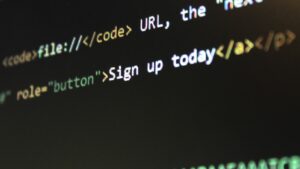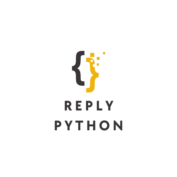 Are you looking to delve into the world of coding but unsure where to start? Learning how to code can open up a plethora of opportunities in today’s tech-driven world. Whether you aspire to become a software developer, enhance your problem-solving skills, or simply explore a new hobby, mastering coding is a valuable asset.
Are you looking to delve into the world of coding but unsure where to start? Learning how to code can open up a plethora of opportunities in today’s tech-driven world. Whether you aspire to become a software developer, enhance your problem-solving skills, or simply explore a new hobby, mastering coding is a valuable asset.
In this article, discover the best strategies to kickstart your coding journey. From online tutorials and interactive coding platforms to joining coding communities and working on real-world projects, there are various avenues to help you grasp coding concepts effectively. With the right approach and dedication, you can unlock the secrets of coding and embark on a rewarding learning experience.
Best Way to Learn How to Code
When it comes to learning how to code, exploring various learning platforms can offer diverse opportunities for individuals looking to enhance their coding skills. Here are some effective ways to delve into the world of coding education:
Online Courses and Tutorials
Online courses and tutorials are popular choices for individuals keen on learning how to code. Platforms like Coursera, Udemy, and Codecademy offer a wide range of programming courses  suitable for beginners and experienced coders. These platforms provide interactive lessons, assignments, and quizzes to help learners grasp coding concepts effectively. With the flexibility of self-paced learning, online courses are convenient for anyone looking to start their coding journey or advance their skills.
suitable for beginners and experienced coders. These platforms provide interactive lessons, assignments, and quizzes to help learners grasp coding concepts effectively. With the flexibility of self-paced learning, online courses are convenient for anyone looking to start their coding journey or advance their skills.
Coding bootcamps have gained popularity as intensive, immersive programs designed to equip individuals with practical coding skills in a short period. These bootcamps, such as General Assembly, Flatiron School, and App Academy, offer structured curriculums taught by industry professionals. With a focus on hands-on projects and real-world applications, coding bootcamps are ideal for those seeking a quick transition into a coding career. Many bootcamps also provide career services to assist graduates in securing job opportunities after completing the program.
Traditional Degree Programs
Traditional degree programs in computer science or related fields are another avenue for individuals looking to acquire in-depth knowledge of coding. Universities and colleges offer undergraduate and graduate programs in computer science, software engineering, and information technology. These degree programs cover a wide range of coding languages, algorithms, and software development principles. While completing a degree requires a longer time commitment compared to other learning options, it provides a comprehensive education in coding and opens doors to various career paths in the tech industry.
Choosing the Right Programming Language
When considering which programming language to start learning, there are several key factors to take into account.
Factors to Consider
- Goal-oriented Selection: Understand the purpose behind learning to code. Different languages are suitable for various objectives, such as web development, data analysis, or mobile app creation.
- Ease of Learning: Opt for a beginner-friendly language with clear syntax and extensive community support to facilitate your learning journey.
- Job Market Demand: Research the demand for specific programming languages in the job market to align your learning with career opportunities.
- Project Compatibility: Choose a language that is compatible with the type of projects you aspire to work on, whether it involves creating websites, developing software, or delving into
 artificial intelligence.
artificial intelligence. - Community Support: Consider languages with active online communities that offer resources, forums, and tutorials to aid your learning process.
- Python: Renowned for its readability and versatility, Python is an excellent choice for beginners due to its simplicity and widespread application in fields like web development, data science, and automation.
- JavaScript: As a fundamental language for web development, JavaScript allows beginners to create dynamic and interactive web pages, making it a valuable skill for aspiring front-end developers.
- Java: Widely used in enterprise applications and mobile development, learning Java provides a strong foundation in object-oriented programming and opens doors to a multitude of career opportunities.
- Ruby: Known for its elegant syntax and focus on simplicity, Ruby is favored by beginners for its user-friendly nature and the popular web framework Ruby on Rails.
- C++: Although considered more complex, mastering C++ offers a deep understanding of programming principles and is beneficial for those interested in game development or system programming.
Choosing the right programming language sets the foundation for your coding journey, so assess your goals, interests, and the market demand to make an informed decision.

